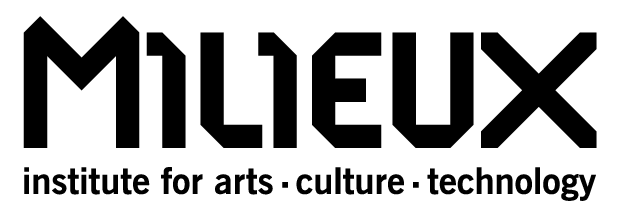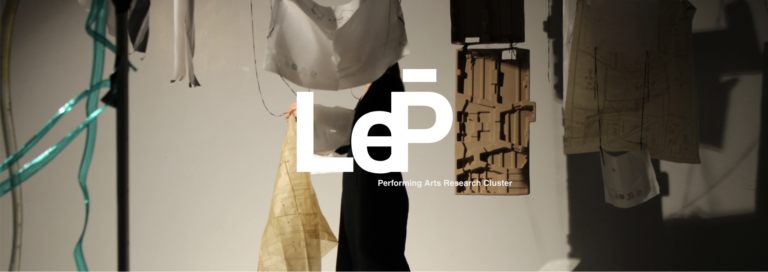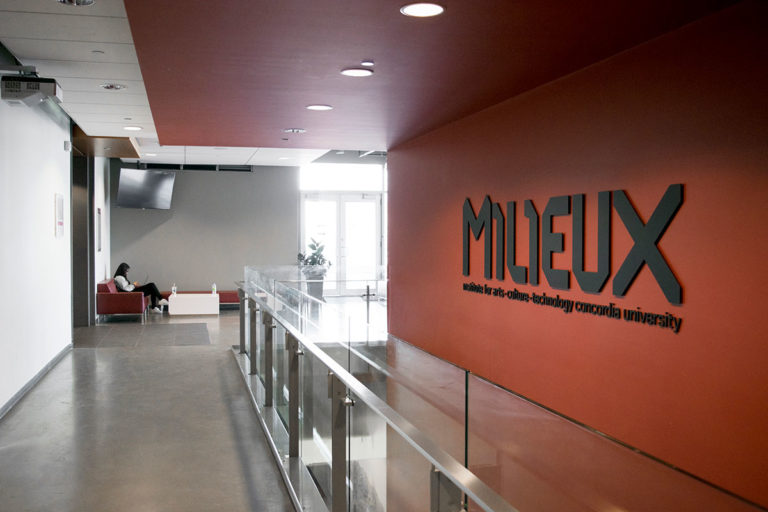It is thought that people in Tonga and the Moana Pacific walk forward (‘alu ki mu‘a) into the past (kuongamu‘a “age-in-the-front”) and, at the same timespace, walk backward (‘alu ki mui) into the future (kuongamui “age-in-the-back”)…
— Hūfanga ‘Okusitino Māhina
According to Tongan wisdom, the past has stood the test of timespace and should therefore be brought to the front as guidance, and since the future is yet to take place, it must be brought to the back. Both past and future take place in the present in permanent negotiation; we must walk with our gazes fixed on the things that shaped us. Dr. Heather Igliolorte brought up the notion of “walking backward into the future” during an online celebration of the Indigenous Futures Research Centre (IFRC)’s achievements and its vision for the future. On November 17, leaders and members of the IFRC introduced the research centre to the Concordia community and the world. Born as a research cluster at the Milieux Institute, Professor Jason Edward Lewis and Dr. Heather Igloliorte transformed the Indigenous Futures Cluster into a research centre for scholars in humanistic, artistic, scientific and managerial fields whose work attempts to build a future for Indigenous research. The mission of the IFRC is to build a future for Indigenous scholars, but it is doing so while learning from the events that led us to today. How can one address the challenges of the present while still dreaming of the future? How can an academic community use traditional Indigenous knowledge, values and culture to build a concrete and critical future? These are some of the general questions that guide the research and creation done at the Indigenous Futures Research Centre.
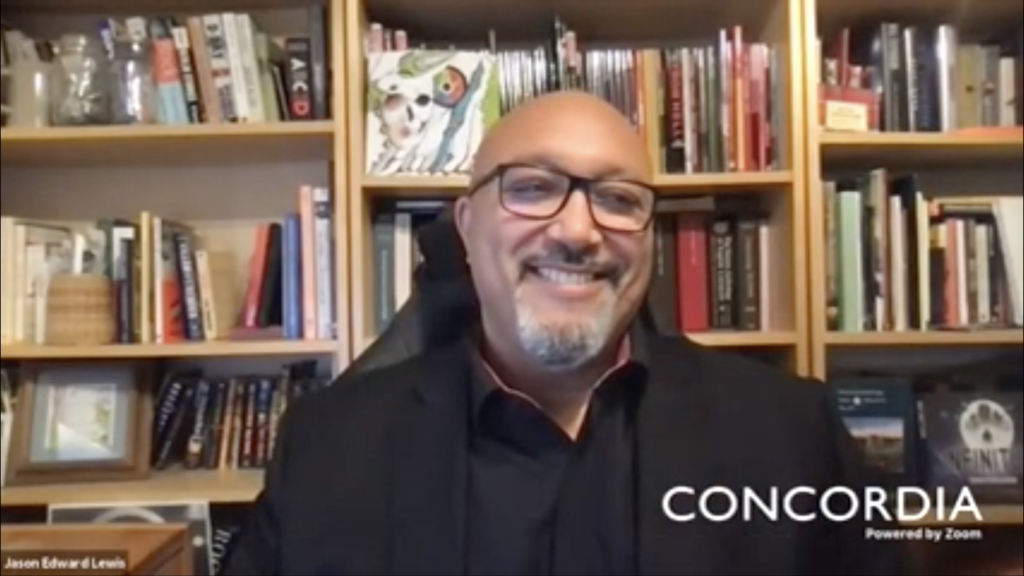
The virtual event began with Kanyen’kehà:ka (Mohawk) visual artist, Skawennati, who welcomed everyone into the space in Kanien’kéha with the Ohén:ton Karihwahtéhkwen, or Words Before All Else. Skawennati is also the Co-founder, Aboriginal Territories in Cyberspace and Partnership Coordinator, for the Initiative for Indigenous Futures SSHRC Partnership. After this, the University’s president Graham Carr, Provost Anne Whitelaw, and Interim Vice President of Research and Graduate Studies Paula Wood-Adams spoke about the importance of supporting Indigenous scholarship as a concrete step in implementing the advice provided by the Indigenous Directions Action Plan and the Truth and Reconciliation Commission. Professor Lewis then explained that the IFRC supports Indigenous research projects at Concordia in three specific ways: by fostering cross-disciplinary research and community-led collaborations and increasing the capacity of Indigenous researchers; hosting a space where essential questions for Indigenous peoples can be seen through multiple lenses; and facilitating a learning environment where faculty and students can operate within a context of advanced Indigenous thinking. The Indigenous Futures Research Centre received its formal status in June 2020. Through Igloliorte’s eyes, we saw a vision of the IFRC as a space for scholars to discuss Indigenous issues with rigorous detail instead of being stuck in an ever-repeating cycle of remedial 101 lessons on Indigenous history and culture for settler peers. A research centre specifically focused on Indigenous futures allows the community to move past this repetitive cycle and foment sophisticated conversations and forward-looking debates. The IFRC also provides a physical space in the EV building for students and researchers to convene.
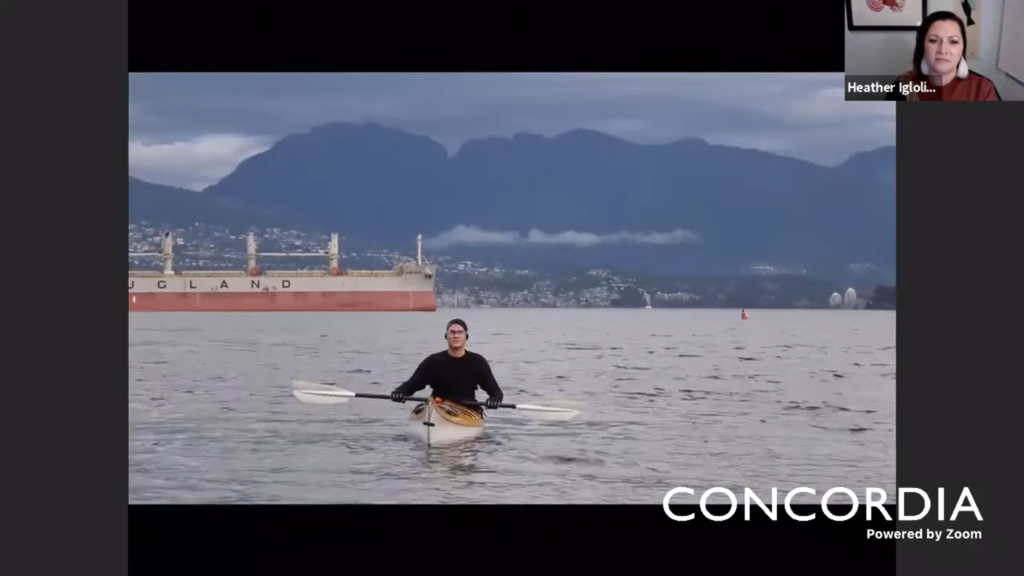
Artist and Associate Professor in Visual Arts, Mark Igloliorte showed the audience a moving and insightful example of his practice. In a video piece titled “Eskimo Roll” from 2017, we see him sitting in a kayak, when suddenly he throws his body to the side and dives into the water while remaining inside the vessel. He then spins out of the water back to breathe and repeats this rolling motion over and over, creating a captivating choreography that weaves an Inuit hunting practice with the view of contemporary Vancouver in the background. Professor Igloliorte revives rituals of the past and transforms them into artistic gestures in the present, hoping to construct a shared dialect for future generations to connect with the past. He told the audience that he initially thought the video was for himself, to reflect on his culture and take possession of a manoeuvre that had been lost to many generations of his ancestors. But, in the end, he realized he was also making it for his students. He wanted to teach them that failure and repetition are inevitable aspects of success. The video suggests that it is essential to be attuned with history and experience, not as a stumbling block that paralyzes us but as a stepping stone into the future.
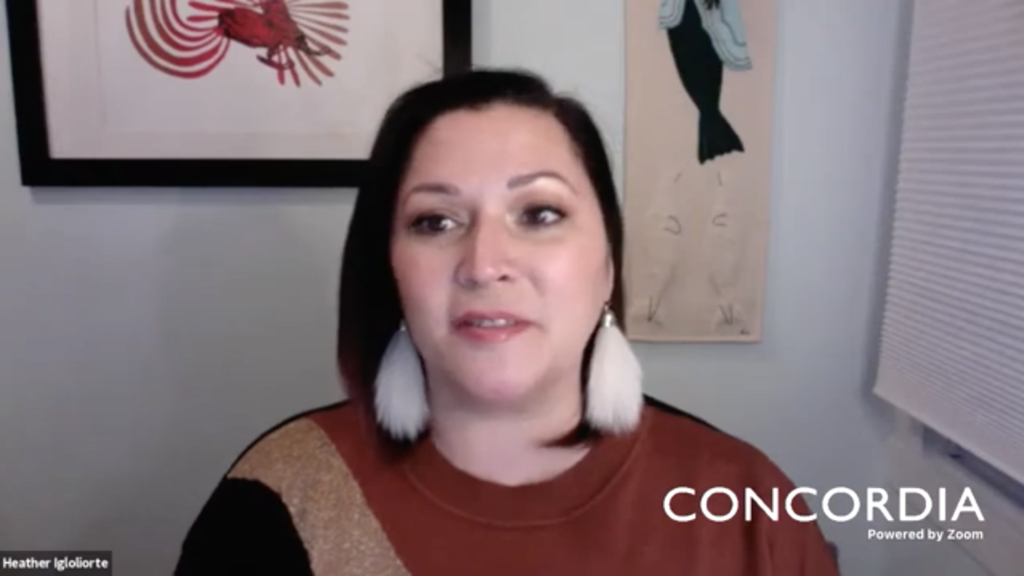
Dr. Michelle McGeough, also a member of the IFRC, suggested that the project of Indigenous Futures entails “picking up the things we had laid down in order to bring them into the contemporary context,” referencing the work of Michi Saagiig Nishnaabeg writer and artist Leanne Betasamosake Simpson. Dr. Natasha Blanche-Cohen and Professor Hannah Claus echoed these sentiments as they spoke about projects to support youth perspectives and efforts to build international networks and initiatives. Other recent initiatives supported by the research centre include MA student Christine Qillasiq Lussier’s oral history project with elders in the community of Salluit, the “Promoting and Protecting the Arts and Cultural Expressions of Indigenous Peoples” guide, and the Abundant Intelligences research project exploring Indigenous approaches to artificial intelligence. “The experiences and insights shared articulate both real life encounters and challenges with misappropriation of the arts, cultural expressions and artistic practices as well as some of the tools and solutions being advanced to address the challenges of things like cultural appropriation.” Dr. Heather Igloliorte said. Addressing academic and social challenges, the IFRC will step backwards into the future in order to build a world that respects the past.
References
Māhina, Hūfanga‘Ōkusitino. “On the Matter of Kava: From the Past to the Present to the Future.” In KAVA: A workshop for kava researchers and enthusiasts: Anthropology and Pacific Studies Seminar Series. The University of Waikato, 2017.
